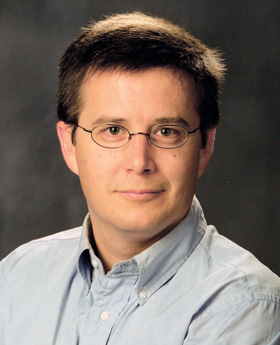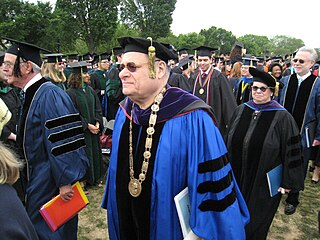The Atlantic Council is an American think tank in the field of international affairs, favoring Atlanticism, founded in 1961. It manages sixteen regional centers and functional programs related to international security and global economic prosperity. It is headquartered in Washington, D.C. It is a member of the Atlantic Treaty Association.

Brent Scowcroft was a United States Air Force officer who was a two-time United States National Security Advisor, first under U.S. President Gerald Ford and then under George H. W. Bush. He served as Military Assistant to President Richard Nixon and as Deputy Assistant to the President for National Security Affairs in the Nixon and Ford administrations. He served as Chairman of the President's Foreign Intelligence Advisory Board under President George W. Bush from 2001 to 2005, and advised President Barack Obama on choosing his national security team.
The term "new world order" refers to a new period of history evidencing dramatic change in world political thought and the balance of power in international relations. Despite varied interpretations of this term, it is commonly associated with the notion of world governance.

Paula Jon Dobriansky is an American diplomat, public official, and foreign policy expert who served as Under Secretary of State for Global Affairs (2001–2009) and the President's Envoy to Northern Ireland (2007–2009). A specialist in Central/East European affairs and the former Soviet Union, trans-Atlantic relations, and political-military affairs, Dobriansky held key senior roles in the administrations of five U.S. presidents.
James L. Pavitt was Deputy Director for Operations (DDO) for the CIA from June 23, 1999, until July 12, 2004, when he resigned a day after George Tenet. The CIA said the resignations was for personal reasons.

Andrew S. Natsios is an American public servant and Republican politician originally from Massachusetts, who served in a number of positions in the administrations of Governor Paul Cellucci and President George W. Bush.

Stephen John Hadley is an American attorney and senior government official who served as the 20th United States National Security Advisor from 2005 to 2009. He served under President George W. Bush during the second term of his administration. Hadley was Deputy National Security Advisor during Bush's first term.

Richard Nathan Haass is an American diplomat. He was president of the Council on Foreign Relations from July 2003 to June 2023, prior to which he was director of policy planning for the United States Department of State and a close advisor to Secretary of State Colin Powell in the George W. Bush administration. In October 2022, Haass announced he would be departing from his position at CFR in June 2023. He was succeeded by former U.S. trade representative Michael Froman.

Peter Douglas Feaver is an American professor of political science and public policy at Duke University and a civil-military relations scholar.
The Scowcroft Group is an international business advisory firm managed by Brent Scowcroft, former National Security Advisor to U.S. President George H. W. Bush and Gerald Ford.
Kevin G. Nealer is an American businessperson and political figure. He is currently a principal and partner in The Scowcroft Group, specializing in financial services, risk analysis, direct investment and trade policy.

The Vulcans is a nickname used to refer to Republican presidential candidate George W. Bush's foreign policy advisory team assembled to brief him prior to the 2000 US presidential election.

Stephen Joel Trachtenberg was the 15th President of the George Washington University, serving from 1988 to 2007. On August 1, 2007, he retired from the presidency and became GW's President Emeritus and University Professor of Public Service at the Trachtenberg School of Public Policy and Public Administration.

Richard Bruce Cheney is an American retired politician and businessman who served as the 46th vice president of the United States from 2001 to 2009 under President George W. Bush. Often cited as the most powerful vice president in American history, Cheney previously served as White House Chief of Staff for President Gerald Ford, the U.S. representative for Wyoming's at-large congressional district from 1979 to 1989, and as the 17th United States secretary of defense in the administration of President George H. W. Bush. He is the oldest living former U.S. vice president, following the death of Walter Mondale in 2021.

Meghan L. O'Sullivan is a former deputy national security adviser on Iraq and Afghanistan. She is Jeane Kirkpatrick Professor of the Practice of International Affairs at Harvard Kennedy School and a board member of the Belfer Center for Science and International Affairs at Kennedy School. She is a member of the board of directors of the Council on Foreign Relations, and Raytheon, and the North American chair of the Trilateral Commission.
Stephen Peter Rosen is a Harvard College Professor and Beton Michael Kaneb Professor of National Security and Military Affairs in the Government Department in the Faculty of Arts and Sciences at Harvard University and is known as a neoconservative. In addition to his academic work, Rosen was also Master of Harvard College's Winthrop House from 2003 to 2009. He is also Senior Counsellor to the Long Term Strategy Group based in Washington D. C., a defense consulting firm.
Membership in the Council on Foreign Relations comes in two types: Individual and Corporate. Individual memberships are further subdivided into two types: Life Membership and Term Membership, the latter of which is for a single period of five years and is available to those between the ages of 30 and 36 at the time of their application. Only U.S. citizens and permanent residents who have applied for U.S. citizenship are eligible. A candidate for life membership must be nominated in writing by one Council member and seconded by a minimum of three others.
The Project on National Security Reform (PNSR) was a nonpartisan non-profit organization mandated by the United States Congress to recommend improvements to the U.S. national security system. Advocates of reform of the U.S. national security system contend that the fundamental components of the system, which includes the National Security Council, the Department of Defense, the Department of State, the Central Intelligence Agency, among others, were largely designed via the National Security Act of 1947 in order to combat the Soviet Union. Today's global security environment, largely due to globalization, is much more complex than it was during the Cold War. PNSR argues that government structures need to be more agile and efficient in order to combat new threats such as terrorism, transnational crime, and rogue states.

Daniel Bruce Poneman is an American lawyer and businessman. He served as President and Chief Executive Officer of Centrus Energy, a publicly traded energy company, (LEU) from 2015 to 2023. Prior to joining Centrus Energy, he served as United States Deputy Secretary of Energy from 2009 to 2014. He is also a Distinguished Fellow at the Paulson Institute at the University of Chicago and a Senior Fellow at the Belfer Center for Science and International Affairs at the Harvard Kennedy School. Poneman was Acting Secretary of Energy in 2013 following the resignation of Steven Chu until Ernest Moniz was confirmed and sworn in.










